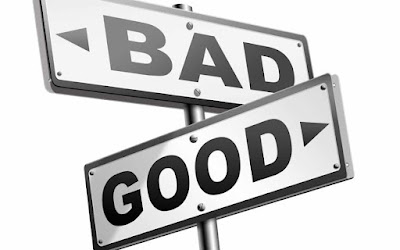What is ESG? Is it good for you and our society?
Why do millions of people invest in retirement accounts? The
answer is obvious: to have money to live on when they're no longer
working. The best way for those investment accounts to grow is to invest
in companies that make a profit. Less profit for those companies means
less money for retirement.
This might seem like common sense but it's becoming less
common, thanks to a new investment strategy called ESG.
ESG stands for Environmental, Social, and Governance. If you're wondering
what that means, you're not alone. Generally, it means that a company's first
concern should no longer be how much money it makes, but rather how
much social good it does. In other words, get “woke”, or get
shamed.
For example, If you're an oil company you're out of
luck because, by the nature of your business, it's assumed
you're destroying the planet. Never mind that you're powering homes and
hospitals. And that nearly every advancement we’ve made in the past century,
including saving more lives and lifting more people out of poverty then in all
of human history has been because of fossil fuels. However, all that doesn't
count. In fact, if you're a company just trying to make a profit, you're the
problem.
ESG proponent Klaus Schwab, chairman of the World
Economic Forum, puts it this way: "We can't continue with an economic
system driven by selfish values, such as short-term profit..." The
message is clear: we need ESG to save us from ourselves. Really?
The pursuit of profits has fueled many of
mankind's greatest innovations and greatest companies. It led Elon Musk to
build electric cars, Andy Grove to design computer chips, and Reed
Hastings to develop the world's most popular streaming service. Everything
from aspirin to commercial airplanes, yes even solar panels and wind
turbines came about because of the desire for profit.
Profit is why you have a job, clothes, a house, food, medicine,
and every other necessity, not to mention luxuries. It's the reason why
you can live in Phoenix and stay cool or live in Buffalo and stay warm. The
genius of capitalism is that it requires businesses to do good
things for society to make a profit.
Think about it: If you want to start a business — whether it's
a dog hotel or a shoe factory — you'll have to create a product or service
that helps others — at a price they can afford. If you want to hire
employees, you'll have to offer attractive wages and safe working
conditions. Otherwise, nobody will work for you. If you want customers,
not only will you have to make a good product, but you'll need to
cultivate a good reputation. That means treating those customers well
and offering competitive prices.
In a free enterprise system, you can't make money
without providing a social good.
By its very nature, Capitalism is conscientious. It turns
out that profit isn't selfish — it
motivates us to contribute our talents to help others. On
the other hand, ESG threatens this system. By denigrating profit, it
lessens the incentive and the means to do good. Without profits, companies
won't have the capital to provide jobs, pay investors, or fund innovation.
But that's the world ESG wants you to live in: a world where profit takes
second place to a preoccupation with income inequality, race and
gender sensitivity, and climate alarmism.
However, even if you wanted to address those concerns,
how would ESG help you do it? That's a fair question because there's no
consensus on ESG standards. Here's a good example: Three self-proclaimed
ESG watchdogs have given Tesla three completely different ratings:
best, worst, and middling.
In capitalism, there is a simple metric to determine
success: how much money you're making. Under ESG, there is no such thing.
It's a judgment call. To make ESG investment strategies even more
problematic, according to Meir Statman, professor of finance at Santa
Clara University, "in the long run, ESG investors are likely to earn lower
after-fee returns than non-ESG investors."
Over a period of say, 30 years, those fees alone could
cost you hundreds of thousands of dollars. So, if ESG endangers profits, offers
no clear metric for success, and is a mediocre investment, why is it
even a "thing?"
For two main reasons: First, ESG allows people like Larry
Fink, CEO of BlackRock, the world's largest investment company, to
feel good about themselves. It's a "get out of jail free" card
for "guilty" billionaires. They preen and virtue signal in the
New York Times — and the rest of us are stuck with the bill. Second,
it's about control. ESG enables an "enlightened" elite to tell everyone
else how to run their companies. Submit to ESG or you won't get that
loan or that investment, whether or not it's good for your bottom
line and your shareholders. That's how companies and whole economies
go from woke to broke. Including your 401k.
So, if somebody tries to sell you on Environmental,
Social, and Governance (ESG) investing, hold on tight to your wallet and
to your values. ESG is coming for both.
- Andy Puzder



Comments
Post a Comment